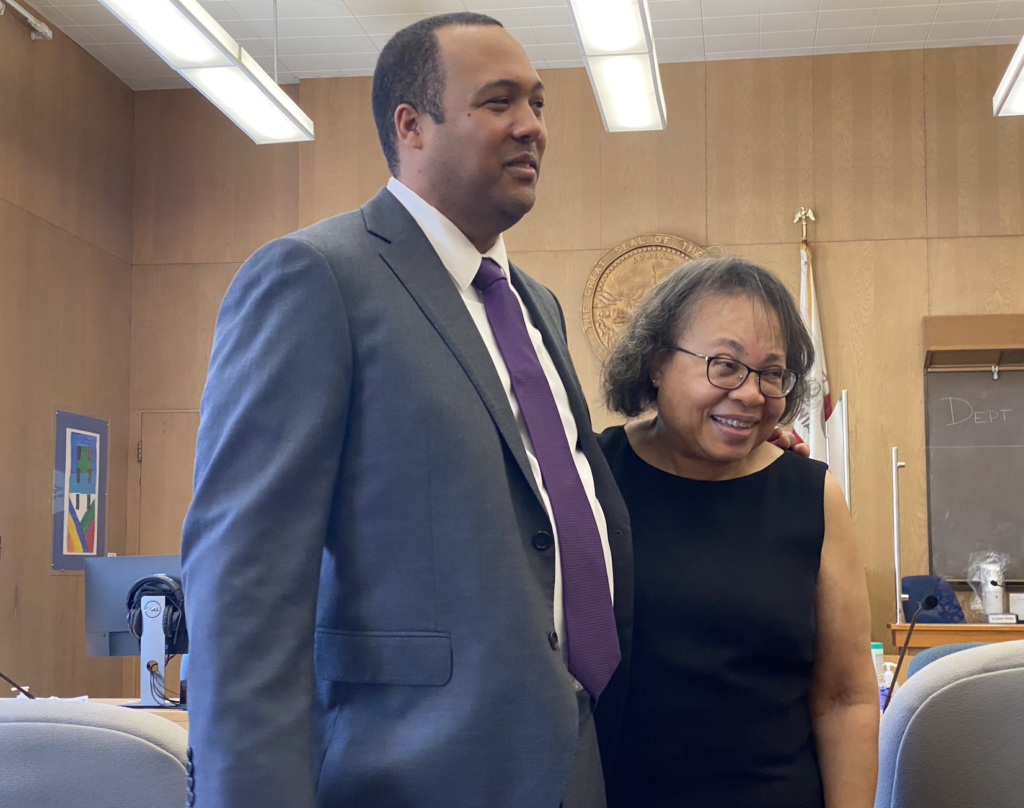Solutions for Probate Litigation
Probate litigation in California involves legal disputes that arise during the probate process, which is the court-supervised procedure for identifying and gathering the assets of a deceased person (decedent), paying the decedent’s debts, and distributing the remaining assets to the decedent’s beneficiaries. These disputes can emerge over various aspects of the estate and its administration, and often involve complex legal and factual questions.
Unfortunately, litigation often becomes necessary to address injustices and ensure the deceased’s intentions are fulfilled. Bryan stands out as a compelling and skilled lawyer who specializes in resolving estate-related disputes.
Our experience has shown that probate and trust litigation often stem from the inevitable realities of death, taxes, and greed, compounded by inequities in appearance, fortune, affection, and wealth among siblings and their half-siblings. Grief frequently acts as a powerful catalyst, prompting the living to vent their frustrations on the deceased through legal means, thereby unveiling underlying family discord among those left behind. We advocate for a robust case evaluation and mediation strategy as an effective approach to not only safeguard estate assets but also to help maintain family bonds among the surviving members.
Common types of probate litigation in California include:
1. Will Contests
These disputes occur when someone challenges the validity of a will. Grounds for contesting a will may include allegations of undue influence, lack of testamentary capacity (the decedent’s mental ability to make a will), improper execution (the will was not signed or witnessed according to legal standards), or fraud.
2. Trust Litigation
Similar to will contests, trust litigation can arise when there are disputes over the validity of a trust document, the management of the trust by the trustee, or the interpretation of trust terms.
3. Breach of Fiduciary Duty
This occurs when a beneficiary alleges that the executor or trustee has failed to act in the best interests of the beneficiaries or the estate, such as by mismanaging assets, failing to make timely distributions, or engaging in self-dealing.
4. Estate Administration Disputes
Disputes may also arise over the handling of the estate’s administration, including disagreements over the valuation of assets, the payment of debts and taxes, and the distribution of assets to beneficiaries.
5. Conservatorship and Guardianship Disputes
These involve disagreements over the appointment of conservators or guardians for individuals who are unable to manage their own affairs due to incapacity.
6. Property Rights Disputes
Disputes over the interpretation of how property is titled or should be distributed, including issues related to community property and the rights of surviving spouses or registered domestic partners.
Probate litigation can be emotionally charged and legally complex, often involving intricate details of state law and the specifics of the deceased person’s estate plan. It typically requires the involvement of attorneys who specialize in probate and estate law to navigate the disputes and reach a resolution, either through negotiation, mediation, or court proceedings. The goal of probate litigation is to ensure the decedent’s wishes are honored (to the extent they are known and legally valid) and that the rights of beneficiaries, heirs, and other interested parties are protected.
Your Advocate

Litigation Pricing Plans
Hourly
Bryan provides services based on an hourly billing model, with a rate of $300 per hour. The initial retainer is determined by the specific requirements and initial scope of the representation.
Contingency
Bryan is committed to ensuring access to justice and, recognizing that some individuals may not have the means to afford legal representation, he accepts a select number of cases on a contingency basis. This approach enables those without the financial resources to seek redress and access the courts.
Under our contingency fee arrangement, our fee is 30% of any recovery obtained if the case is settled before trial. Should the matter proceed to trial and a recovery is obtained post-trial, the fee will be 40% of the recovery amount.
Please note that contingency fee arrangements are not available for services such as private mediation or case evaluations.
Unsure about which billing option is best for your situation? Believe it or not, there’s a way to evaluate whether an hourly or contingency fee arrangement is more beneficial for your case. Click here to learn more.
Discussing attorney's fees is crucial to me as I prioritize setting clear expectations and addressing any concerns my clients may have. I established ROI on the Christian principles of honesty, kindness, and generosity, and I endeavor to embody these values daily. I find that the most fruitful client relationships are formed with those who are well-informed about the legal process and understand the structure of my fees. I generally recommend hourly fees because they frequently represent the most cost-effective method for clients. I caution against contingency fees as they can sometimes lead to dissatisfaction; a significant portion of what clients might perceive as their rightful inheritance goes towards attorney fees. This sense of loss can be particularly acute if the case is resolved quickly through early mediation, leaving clients feeling as though they have forfeited a substantial amount of their entitlement for relatively little legal work.

Contested Proceedings
A contested legal proceeding refers to any case in which the parties involved disagree on one or more issues pertaining to the case, leading to a dispute that must be resolved through the legal system. This disagreement can be over the facts of the case, the laws that apply, or both. In a contested proceeding, the parties may require a judge or a jury to make a final decision after evaluating evidence and arguments presented by both sides.
Contested proceedings can occur in various areas of decedent affairs including trusts, creditor claims, and wills. The process typically involves formal legal actions such as filing court documents, discovery (exchange of information relevant to the case), pre-trial motions, and possibly a trial.
Our firm is equipped to represent a diverse group of clients in contested probate and trust litigation, including heirs and beneficiaries, executors and personal representatives, conservators, guardians, fiduciaries, and creditors.
We offer comprehensive probate and trust litigation services, covering areas such as:
- Conservatorships and Guardianships
- Spousal Property Petitions
- Creditor Claims & Debt Collection
- Will Contests
- Defense of Fiduciaries
Estate administration disputes are uniquely challenging, as the individual who created the estate plan can no longer clarify their intentions. Issues such as lack of testamentary capacity due to illnesses like dementia, susceptibility to undue influence, coercion, fraud, or simple errors, complicate the administration process. Bryan is committed to uncovering the truth in these situations through litigation, mediation, and negotiation.
With a keen understanding of how to identify testamentary capacity issues, analyze the structure of estate planning documents, and assess fiduciary actions, Bryan is adept at navigating the complex landscape of probate litigation. His experience spans a wide array of probate and trust disputes, ensuring thorough and competent representation for our clients.
Representation in Will Contests
A will contest is a legal challenge to the validity of a will or specific provisions within it. These challenges are typically brought forth in a probate court after the will’s creator (the testator) has passed away. Contestants are usually heirs, beneficiaries, or parties who would stand to benefit under a previous will or in the absence of a will under state intestacy laws. The grounds for contesting a will can vary but commonly include:
Lack of Testamentary Capacity: Arguing that the testator did not have the mental capacity to understand the nature of the testamentary act, the extent of their assets, or the claims of those who might be considered beneficiaries.
Undue Influence: Claiming that the will was the result of pressure or manipulation from an individual who had a close relationship with the testator, leading to decisions that do not reflect the testator’s true intentions.
Improper Execution: Asserting that the will was not signed and witnessed according to the legal requirements of the jurisdiction where it was created, making it invalid.
Fraud or Forgery: Alleging that the will was fraudulently induced or forged.
Revocation: Arguing that the will was revoked by the testator before their death, perhaps by the creation of a newer will.
Will contests can be emotionally charged and legally complex, often requiring detailed investigation and substantiation of claims. They can also be lengthy and costly, impacting the estate’s value and delaying the distribution of assets to the beneficiaries.
Bryan is equipped to handle probate litigation involving disputes over estate administration, property rights, and decisions concerning the decedent’s final arrangements.

Reclaiming Estate or Conservatorship Assets
When a minor, an incapacitated person, or an estate is due to receive funds or assets from a personal injury settlement, a trust, or an estate, it may be necessary for a conservator or other fiduciary to oversee the proper collection, safeguarding, and distribution of these assets. We provide support in recovering these assets and offer assistance to vulnerable clients whose fiduciaries have mismanaged or improperly allocated the resources entrusted to them.

Disposition of Last Remains
Differing ethical and religious beliefs may cause family members to disagree about the method of the final disposition of the body of a loved one. There may be disputes regarding place of burial, who will receive the remains, and whether cremation is appropriate. We represent family members and named fiduciaries in ensuring that their deceased loved one or client is treated with dignity, pursuant to his or her wishes, even in death.

Guardianship and Conservatorship Proceedings
A guardianship proceeding in California is a legal process through which an individual (the guardian) is appointed by the court to manage the personal affairs and/or property of another person (the ward). This process is typically initiated when the ward is a minor (under the age of 18) or is an adult who is unable to make decisions for themselves due to physical or mental incapacity. In California, guardianship proceedings are governed by the California Probate Code and can involve two main types of guardianship: guardianship of the person and guardianship of the estate.
Guardianship of the Person: This type of guardianship is established to take care of the physical well-being of the ward. The guardian is responsible for the ward’s care, protection, and education. The guardian makes decisions regarding where the ward lives, attends school, and receives medical care.
Guardianship of the Estate: This type of guardianship focuses on managing the ward’s financial affairs. The guardian has the authority to make financial decisions on behalf of the ward, including handling their income, paying bills, and managing investments. Guardianship of the estate is necessary when the ward owns or receives substantial assets.
For minors, guardianship might be necessary when their parents are deceased, unable to care for them, or in cases of abandonment. For adults, a guardianship might be needed due to conditions like severe mental illness, dementia, or other incapacitating conditions that render them unable to make informed decisions for themselves.
The guardianship proceeding begins with filing a petition in the probate court. The court then evaluates the necessity of appointing a guardian, considering the best interests of the ward. The process involves notifying the relatives of the ward and possibly the ward themselves, conducting a hearing, and may include investigations by a court investigator or other appointed guardian ad litem to represent the interests of the proposed ward.
Once a guardian is appointed, they are often required to report to the court about the guardianship status at specified intervals, providing updates on the ward’s well-being and/or the management of the estate. Guardians are held to high ethical standards, expected to act in the best interests of the ward at all times, and may be required to post a bond as a form of financial assurance for their stewardship of the ward’s assets.
Guardianship proceedings are significant legal matters, often involving complex considerations of the ward’s needs, rights, and best interests. As such, it’s common for individuals involved in such proceedings to seek legal advice and representation.
In situations where there is no estate plan, the existing plan is insufficient, or an individual becomes too ill or incapable of appointing a representative, intervention by a probate court may be necessary to appoint a guardian and/or conservator. Bryan provides assistance to family members in navigating the legal process to obtain a court-appointed guardian or conservator for their incapacitated loved ones.
Bryan brings a wealth of experience to contested guardianship and conservatorship hearings, capable of managing cases ranging from straightforward to complex. Our firm stands ready to support clients through every stage of these critical proceedings.
At ROI we offer a complimentary consultation if you are involved in a will contest, inheritance dispute or conservatorship or guardianship matter.
Let's Get In Touch
Representing Creditors and/or Debtors
In California, when a person passes away, their debts do not simply vanish. Instead, the process of handling these debts falls under the purview of the estate administration or probate process. Here is a simplified overview of how debts of a deceased person are handled:
Notification of Creditors: After a person dies, the executor or administrator of the estate (the person legally appointed to manage the estate’s affairs) is responsible for notifying creditors of the death. This is often done through direct notification to known creditors and by publishing a notice in a local newspaper.
Inventory and Appraisal: The executor or administrator must take inventory of the deceased person’s assets and, if necessary, get them appraised. This step is crucial for understanding what resources are available to pay off the deceased’s debts.
Payment of Debts: Debts and taxes of the deceased must be paid before any assets can be distributed to heirs or beneficiaries. California law prioritizes the order in which debts are to be paid from the estate’s assets. Typically, secured debts, funeral expenses, and administrative expenses (including attorney’s fees) are among the first to be paid. If there are insufficient assets to cover all debts, the estate may be declared insolvent, similar to bankruptcy.
Probate Process: Many of these steps occur within the framework of the probate process if the deceased person’s estate goes through probate. Probate is a court-supervised procedure for distributing the deceased’s assets according to their will (if one exists) or state law (if there is no will).
No Personal Liability for Heirs: It’s important to note that heirs or beneficiaries of an estate are generally not personally liable for the deceased person’s debts. However, the amount they inherit can be impacted if estate assets need to be used to satisfy debts.
Exceptions: Certain types of property and assets may bypass the probate process and go directly to named beneficiaries (e.g., life insurance policies, retirement accounts). Such assets typically are not used to pay the deceased’s debts unless required by law.
Special Situations: In cases where the deceased had joint debts or was married, the surviving co-debtor or spouse might be responsible for some of the debt, depending on the nature of the debt and how ownership was held.
This process can be complex and varies depending on the specifics of each estate. Consulting with a legal professional experienced in probate and estate law in California is advisable to navigate these matters properly.
We advocate for creditors in probate and trust litigation, aiming to secure repayment of debts owed by deceased individuals’ estates. Bryan, with his expertise in probate and estate administration, is well-versed in the intricacies of settling an estate’s final affairs, including the prioritization of creditor claims. Our objective is to ensure that creditors are fairly compensated for previous services rendered, loans, or other financial obligations.